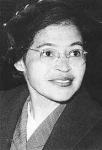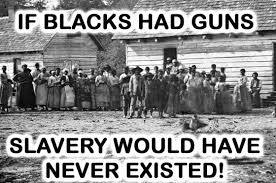The NRA has long distinguished itself as the pre-eminent voice in documenting and preserving the history of American small arms. I was born in Washington, D.C., and spent many happy hours wandering through the NRA’s museum in the old headquarters building that was walking distance from the Capitol and other government sites. And I continue each month to enjoy the historical articles published in The American Rifleman magazine whose quality, frankly, puts the Smithsonian to shame. But lately, in their effort to find new customers and widen the market, the NRA has shifted away from its focus on the history of guns to explaining the history of why Americans use guns and, in the process, have started to play fast and loose with the facts.
Now don’t get me wrong. I have never questioned, nor would I ever question anyone’s personal decision to own or use a gun. God knows I own enough of them myself and I’ve sold more than 12,000 guns to other folks as well. But I believe that when someone – anyone – makes the decision to become a gun owner it shouldn’t be made without at least acknowledging that guns represent a risk that requires them to be used with diligence and care. And I will continue to speak out against the NRA and others who pretend that the risk of gun ownership is somehow mitigated by the protection and security afforded by a gun. I have told many gun friends over the years that I will send a hundred bucks to the charity of their choice if they can prove that guns do more good than harm. I have yet to write the first check.
Getting back to the history of who uses guns, the NRA has just posted an article based on the newly-opened personal papers of Rosa Parks whose refusal to go to the “back of the bus” sparked the Montgomery Bus Boycott in 1955. In a brief biographical sketch, Parks describes sitting up at night with her grandfather who kept a shotgun handy in case his family or others in the neighborhood were menaced by the Ku Klux Klan. The NRA goes on to say that it was “common” for blacks to protect themselves against racially motivated violence and cites other examples of civil rights leaders, including the Rev. Martin Luther King, Jr., who kept guns on or near for self-defense.
I’m happy that the NRA has decided to create greater awareness about the struggle for civil rights and the value that black Americans placed on arming and defending themselves during that time. But when the NRA uses the history of armed resistance to racism to justify arming the average American as a response to everyday crime, they are moving from past history to present-day advocacy, two positions that have nothing to do with each other at all.
The Klan wasn’t just someone who would break into your house or mug you in the street. It was, in many areas of the South, an organized vigilante movement whose mission was to recreate the racist political and social structure that existed before the Civil War. That blacks chose to arm themselves in the face of political terrorism directed only at them should never be confused with decisions that people make today about whether personal ownership of guns will protect them from crime.
The NRA now refers to itself as America’s “longest-standing civil rights organization” and by that I guess they mean that somehow the 2nd Amendment ranks above all other Constitutional rights. But the truth is that the NRA paid lip service at best to concerns about threats to the 2nd Amendment until Harlon Carter took over the leadership in 1977 and began to play the political advocacy game in a much more aggressive way. By the time the NRA discovered that gun ownership was not just a Constitutional but also a civil right, black Americans had been fighting and winning their civil rights for over twenty years.


Recent Comments